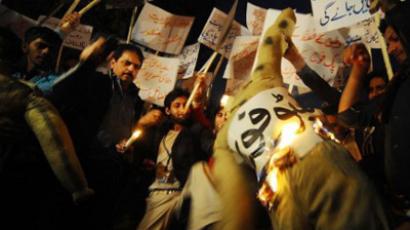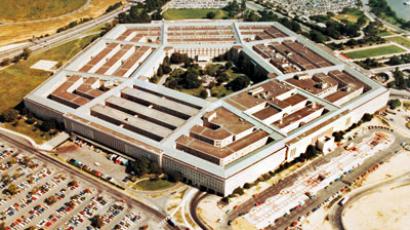Pakistan on brink of military coup?
As the rift between Pakistan’s powerful military and civilian government grows wider, there is increasing speculation about the possibility of a military coup in the nuclear-armed country.
Amid the mounting political turmoil in the country, President Asif Ali Zardari has gone for a one-day “private” trip to Dubai. As Zardari left, according to media reports, military chief General Ashfaq Pervez Kayani, met with top commanders, fuelling speculation about a coup.The ongoing crisis was deepened by Prime Minister Yousuf Reza Gilani’s sacking of his defense secretary, retired General Naeem Khalid Lodhi, over accusations of “gross misconduct and illegal action” and of “creating misunderstanding between the state institutions.” The move on Wednesday sparked anger among the army.On Friday, Zardari’s allies in the parliament introduced a resolution placing "full confidence and trust" in the political leadership. The National Assembly will debate the confidence motion on Monday and the government hopes for a vote next week. Gilani cautiously noted that the purpose of the move was not an attack on the military, which has already staged four coups in the past.Relations between the military and the civilian rulers are at their lowest since 1999. This time around a disputed memo allegedly from Zardari government asking US to help stop a possible coup by the army is at the root of the discontent.Stoking the fires of the country’s political turmoil, the main opposition party, the Pakistan Muslim League Nawaz, has called for early elections.The Zardari government was democratically elected in 2008 and is determined to stay till the end of its term in 2013, even though no civilian government has ever completed its term in office in the country’s 64-year history.However, Robert Parry, editor of Consortium News, believes that despite the frictions between the Pakistani military, justice and civilian layers of society, a military coup in Pakistan does not seem likely.“What happens in Pakistan has for a long time been the biggest fear in Washington. Pakistan is a nuclear-armed country. Who would get nuclear weapons should Pakistan’s government fall?” Parry told RT.Robert Farley, assistant professor as the University of Kentucky, told RT that internal political instability in Pakistan would create friction with the US, which would make it hard for both sides to carry out campaigns against the Taliban.“To the extent that the instability between the government and the military in Pakistan creates problems and friction with the United States, and to the extent that both sides in Pakistan are going to be seeking other allies within Pakistan, it’s going to make it that much harder for both the Pakistani government and the United States to carry out any kind of operations against the Taliban guerrillas that are operating out of Pakistan into Afghanistan.”














